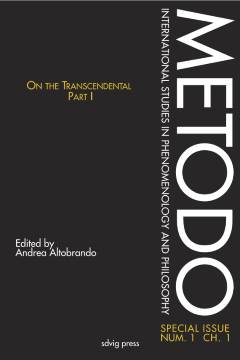Repository | Journal | Volume | Articles
The paper aims at showing that Husserl’s phenomenology is not to be understood as a transcendental philosophy. First, I argue that Husserl’s concept of the "Transcendental" embraces a complex set of problems that are already present in the texts written before the so-called transcendental turn and in the British empiricism. Secondly, I highlight the ideological motivations of Husserl’s tie with the German idealistic tradition and I argue that Husserl – in contrast to transcendental philosophy – conceives of the conditions of possibility of experience as immanent to experience itself and as grounded on sensuous contents. This implies that the constitution of the world presupposes a specific lawfulness characterizing sensuous contents, which cannot be traced back to consciousness and to its performances. Finally, I develop an account of the specific kind of subjectivism that lies in Husserl’s thought. Particularly, I argue that Husserl’s subjectivism is not grounded upon the phenomenological reduction but rather derives from Brentano’s psychological approach. In fact, such subjectivism is based on the understanding of the primitive elements of constitution as immanent and formless contents (data), viz. on a conception that is developed before the so-called transcendental turn and that is in contrast to some basic principles of phenomenology itself.
Publication details
Full citation:
De Palma, V. (2015). Eine peinliche Verwechselung: Zu Husserl's Transzendentalismus. Metodo 1.1, pp. 13-45.
This text is available for download in the following format(s)
This document is available at an external location. Please follow the link below. Hold the CTRL button to open the link in a new window.




